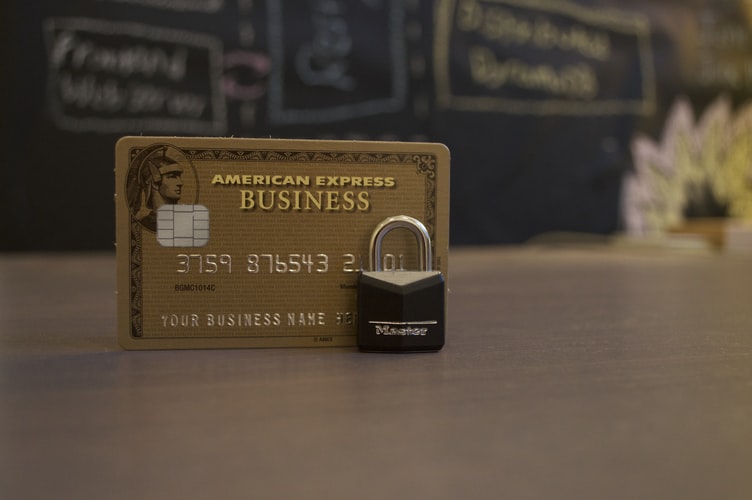
Scoring a business loan can prove to be very difficult if you have a lower business credit score than your lender is willing to permit. You can, however, leverage your personal credit score to secure a business loan, regardless of your credit history. “Personal credit score” refers to the algorithms that determine the probability of you honoring your credit obligations. They are based on factors like the full balance of your credit card monthly and how prompt you are at paying your bills. On the other hand, business credit score deals with corporate matters that relate to the running of your company or business, such as your transaction history and account balances.
Why you need a good credit score
A strong credit score is worth a fortune and will, consequently, save you a lot of money. This is because it will not only open doors for you when seeking capital, but it will also help you get better rates. An entrepreneur can make use of a good credit score of above 600 to secure loans for businesses. Loan terms for vehicles and homes are also often more favorable for those with higher credit scores.

Is your business a startup with little or no credit score? Do you have a bad credit history? Don’t give up, since there are several options that can easily come to your rescue when things get tough. Here are some loan products to consider checking out if you have a strong personal credit score and need financing for your business.
Business lines of credit
This option is perfect for entrepreneurs who are new in the business. You can use your business line of credit in accessing finances at your own discretion and paying for any goods and services. Business lines of credit (BLOC) vary and can range from $1,000 to $500,000 for different individuals. Apart from a credit score of 560 and above, you only need to generate minimum annual revenue worth $50,000, in order to qualify.
The maintenance of inventory, meeting business needs, and the ability to fulfill prompt orders, can all be done smoothly with a business line of credit. You can also use your line of credit when you need capital for expanding your business, tracking expenses within the business, and maintaining cash flow.
Though they now have low-interest rates, it’s worth noting that the rates are not consistent and can vary with time. BLOCs are very convenient for small businesses because of their flexible terms and repayment options. Lenders look at strong credit histories, both personal and business, as well as your company’s position in terms of its cash flow.
Merchant cash advances
Merchant cash advance is the best type of financing to opt for when you are in urgent need of capital for your business operations. This is because you get to borrow money based on your business’s potential success related to its current operations, without delving into a tedious analysis of your financial history. These advances range from $5,000 to $200,000, and the only requirement for qualification is $2,500 of credit card transactions on a monthly basis. The good news is that you are able to get your business financing in a period as short as 24 hours.
Automated Clearing House (ACH) loans
If you have a not-so-good credit history, then taking out an ACH loan is the way to go. This is because it does not consider your credit score in order to let you borrow, but rather focuses on the finances that your business has. Compared to other loan products, ACH loans are relatively quick, and they come with the advantage of direct withdrawal from your checking account. However, the loan amount is usually smaller, with relatively high interest rates.
How to build a better credit score
The journey towards a higher credit score is not a bed of roses, but that doesn’t make it as tough as rocket science, either. Even with an extremely low credit score, there is hope, as you need only to bolster your credit score, and you’ll eventually get business financing. You need to be disciplined, patient, and have the right money management strategies in place. It’s important to keep on checking your credit score and finding ways of improving, especially if you have a startup business. This is particularly beneficial as you’ll be able to realize if there are any errors in your financial records that negatively impact your credit score. Such errors make some people victims of high interest rates and unfavorable terms when they seek loans from financial institutions.
A bad credit score is never a permanent situation, which is why credit repair experts are there to help you out. You don’t deserve the stress and strain of trying to figure out the loopholes in your credit history, since the pros can effortlessly identify errors and suggest ways for improvement. They’ll also help you choose from a number of strategies that raise your credit score. It is prudent to pay attention to credit repair, as you will save much in the process.
Different financial institutions determine your credit score based on different indicators. The most common ones are the period that you’ve been in business, the number of defaulted or late payments you’ve made, and your payment history over the past year. Once you understand these indicators and how they relate to your credit score, you’ll be in a position to improve your rating and secure financing for your business.
Treating your business as a separate entity is very important, and it takes a disciplined entrepreneur to realize this. You can use your personal credit to score finances for your business, but it’s also important to build your business credit score. Some of the simple ways of building a better score include: Liaising with your suppliers to report to major credit bureaus concerning your credit history, regularly checking and improving your profile, and ensuring that your business grows, as that, too, affects your score.


